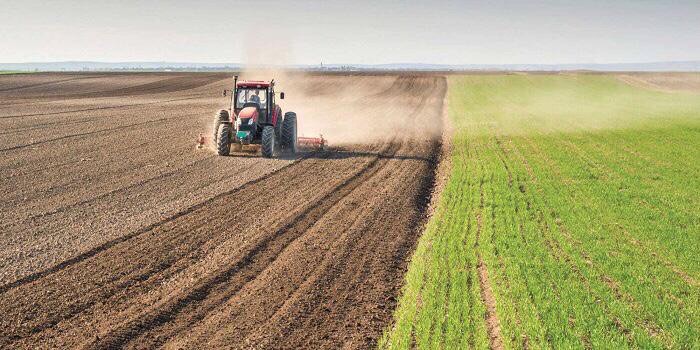The word agriculture has been associated with Iraq since ancient times, and this region has many names, including Mesopotamia, Mesopotamia, the land of the majority, the country of wheat, the land of palm trees, and others …
History of Agriculture in Iraq:
The history of agriculture in Iraq goes back to the first human knowledge of this matter, as the man who settled this land knew agriculture in 9000 BC, then its primitive condition developed in the year 5500 BC in the village of Jarmo in northern Iraq in the middle of the Neolithic period,
Agriculture has flourished over the ages in the country, and those periods of development have witnessed qualitative shifts that transferred agriculture from one state to another, since the Abbasid era, agriculture had the largest share of development until recent years, where attention was paid to irrigation projects that transport water to vast agricultural lands in different ways, including Floods, norias and blocking rivers so that the water rises and becomes confined, and by collecting rainwater in ponds and oases and finally through agricultural pumps, generators and building dams, the country also witnessed a qualitative shift for agriculture that was at the end of the sixties of the last century and continued in one way or another until the beginning of the nineties, which was the beginning of the economic blockade The country, through its relevant institutions in that period, encouraged farmers to reform the lands and passed several laws that helped the farmer cultivate his land. Also, many research centers were established that were concerned with developing seeds and establishing future plans to achieve self-sufficiency in agricultural crops without the need for import. Indeed, Iraq has achieved Self-sufficiency in agricultural crops, as the total import during that period in this sector in particular did not exceed 6 percent of the total Internal order in the year 1988.
Political crises and their impact on agriculture:
This production, which we talked about, has historically deteriorated under the weight of economic sanctions in the early 1990s, and the country has suffered for decades from the repercussions of this matter. Until 2003.
As for the years following the year 2003, there was a decline and decline that Iraq had never seen before, and the reasons were many, including the failure of the Ministry of Agriculture and Water Resources, the large number of imports from abroad, with insufficient customs taxes imposed on it, which forced many farmers to leave their lands and not reclaim them. Regional water problems have played a big role in the matter as well, urban expansion at the expense of agricultural areas in the absence of the state, and one of the things that draw attention in this regard is the percentage of salinity in agricultural lands, which reached 40 percent in southern Iraq, which led to the desertification of vast areas. Yesterday it was suitable for agriculture, bulldozing orchards and agricultural areas for security reasons and many other reasons that are not hidden from anyone, all of which brought the country to an unenviable state in this aspect, where we live today in a state of complete dependence on imports from abroad, matched by a state of government silence and non-consideration For that matter.
Perhaps one of the frightening examples of the government’s political neglect of this main sector in the country is the annual budget for 2021, which is the largest in terms of spending amid a deficit of more than 48.6 billion dollars. Where agriculture formed from this budget (212) million dollars, while the endowment budget, divided between the Sunni and Shiite Endowment Bureau, was equivalent to seven times the agricultural budget, as is the case in previous budgets in which the allocations for agriculture over the past 16 years were meager and do not rise to the level of a country like Iraq And what it represents in this sector, in fact, examples of neglect are many, almost countless, but more important than the presence of many examples of this neglect is the fundamental question posed: is there a real desire on the part of those running the affairs of the country to deal seriously with these files ??
Is there a real desire to save the country from a reality that has become aimed at the country’s existence at its core ?? Is there a real desire to save future generations? If the situation continues as it is, we will not need future generations to witness the collapse of the country completely, but the date will be much closer.
In conclusion, we say whoever has the insistence to save the country from a bitter reality that lasted two decades and more are the youth and the youth only. The country will not witness a real renaissance at any level except in the hands of these young people,
As for the political parties, groups, and those who were wrapped up in their group, the country witnessed none of them except for all the devastation and destruction.
Certainly, we did not address all the problems facing this sector in the country, nor did we talk in detail about the history and capabilities of the country in this aspect, as the explanation in this matter is lengthy, but the purpose remains to remind the country’s issues in various fields.
* It is strictly forbidden to use the information and the studies contained on this site, except with prior permission from the administration and the authors Thualfuqar center.

